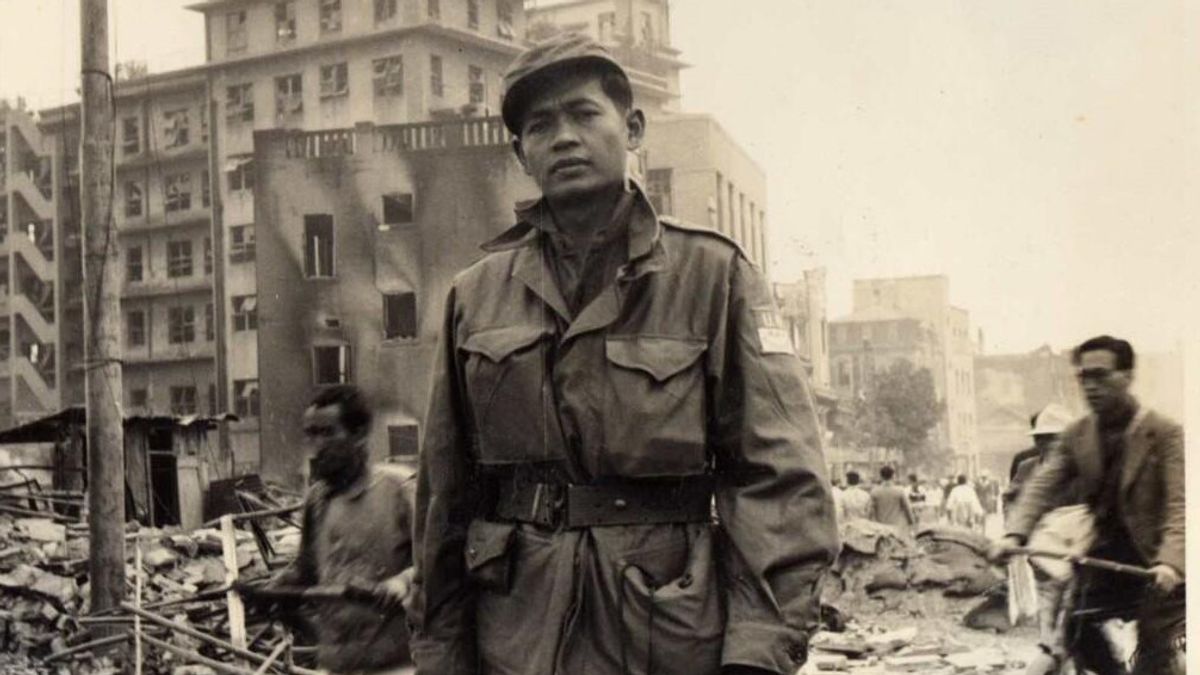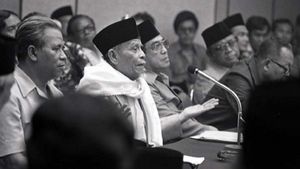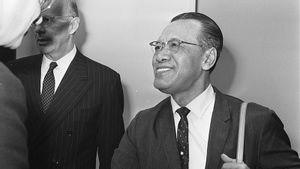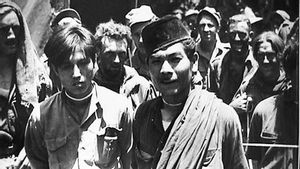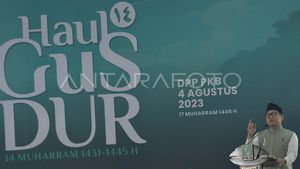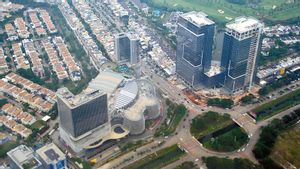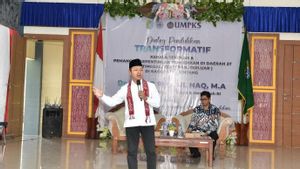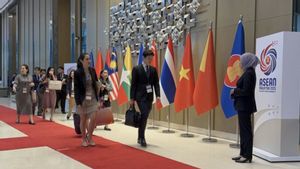JAKARTA - Mochtar Lubis is a press figure who is a role model throughout Indonesia. His observations and criticism often make Indonesian rulers furious and play. The harsh criticism has big consequences. He was once in the prison of the ruler of the Old Order to the New Order (Orba).
In fact, prisons are unable to silence Mochtar's critical power. He continues to perpetuate criticism of the government. Once in a while he once criticized Indonesians. Mochtar Lubis said one of the characteristics of Indonesians is hypocritic: hypocritical.
The Indonesian press world once triumphed with the presence of Mochtar Lubis as a journalist. He is like a legend. He became a perfect example of how journalists carry out their control functions. Instead of choosing to be close to the government, Mochtar continued to have his conscience in favor of the Indonesian people, criticism of government policies.
He is known for his anticompromise. This attitude was sung by the Indonesian government in the power of Soekarno and the Old Order. The editor-in-chief of the Greater Indonesia newspaper often makes the ruler hot.
He dared to reveal cases of injustice, the singing of power, to the oppression of the people of the Old Order era. His courage had to be paid dearly. Mochtar was then targeted by the government to be silenced.
The newspaper was circulated. He was also detained for a long time. From 1958 to 1966, or he was released when the Soekarno and the Old Order regimes fell and were replaced by Suharto and the New Order. Mochtar did not immediately give criticism to the government.
He then looked at the New Order not much better than the Old Order. He saw for himself how corruption was getting worse in the New Order era. If in the past corruption was under the table, now corruption is rampant on the table.
Mochtar perpetuated his criticism indiscriminately. Whoever wants to harm the country, he criticizes. Mainly, Ibnu Sutowo and Pertamina. He often considers Pertamina the New Order era as a warehouse for corruptors.
His critical power did not go away. He often highlighted the negative behavior of New Order officials. This courage made Indonesia Raya, which he led, circulated and he again felt the cold walls of prison again in 1975.
اقرأ أيضا:
I was detained twice in the Bung Karno regime. First, I was under house arrest for 3.5 years. Out of detention I was in Paris attending a press conference. Not long after, I was put back into the Military Detention Center (RTM) for three years, because I was accused of being involved in the Revolutionary Government of the Republic of Indonesia (PRRI). At that time I entered with Gde Agung's Son, M. Natsir, Princen, was transferred to a detention center in Madiun.
After the G30S/PKI was transferred to Jakarta in 1965, they were continued to be released. The third prisoner during the New Order era I was detained once. If I'm not mistaken, two months after Malari (January 16th). About two or three months. I forgot exactly how many months," explained Mochtar Lubis as compiled by Ramadan KH in the book Mochtar Lubis: Speaking Out straight Answering Journalist Questions (1995).
Mochtar Lubis' critical power is in fact not only conveyed to the government. he also often criticizes Indonesians, who in Mochtar are called Indonesians.
Mochtar made the harshest criticism in his cultural speech at Taman Ismail Marzuki on April 6, 1977. His speech was destined to amaze those present. Even other listeners were made to hate because Mochtar was making fun of Indonesians.
All because Mochtar in his speech dared to classify six characteristics of Indonesian people who in fact were many negative, rather than positive (munafik, irresponsible, feudal soul, belief in death, artistic, and weak character). The first and foremost characteristics are that Indonesian people are known to be hypocritics, aka hypocritical.
Others face to face, others behind. He considered that trait to be ingrained. Take, for example, people may say that the laws in this country apply the same. In fact, in fact, he said otherwise. An undergraduate thief is being held. A big thief is free from back and forth.
Hypothetical narrative then penetrated in every way. From sexual matters to corruption. Indonesians refuse the presence of foreign magazines containing sexy photos of a woman. Surprisingly, Indonesians also perpetuate the steam bath business and massage parlors.
Mochtar's hypocritical attitude did not come without reason. All of them came from observations during the era of Japanese colonialism, the Old Order, to New Order. This trait was deliberately expressed so that the Indonesian people would immediately wake up and improve. Bad character is eliminated, good nature is adopted.
Mochtar's speech then received opposition here and there. Many think Mochtar's speech looks reckless and too quick to conclude. However, time to prove. All kinds of so-called Mochtar are actually still relevant, even today.
Indonesian humans because of all this, are also full of hypocrisy. In his environment, he pretends to be pious, will still be when he falls in Singapore or Hong Kong, or Paris, New York and Amsterdam, then jumps into a taxi looking for a nightclub, and messages from women to hotel servants or porters. He also cursed at corruption, but he himself is a corruptor."
"We all condemn corruption, or its new term of commercialization of positions, but we continue to commit corruption from day to day corruption only increases. This kind of hypocritical Indonesian attitude allows corruption to last for a dozen years at Pertamina, for example, and even though the facts are clear and clear, but to this day no legal action has been taken against the main perpetrators," Mochtar Lubis said in his speech as quoted by the book Manusia Indonesia (2017).
The English, Chinese, Japanese, Arabic, and French versions are automatically generated by the AI. So there may still be inaccuracies in translating, please always see Indonesian as our main language. (system supported by DigitalSiber.id)
